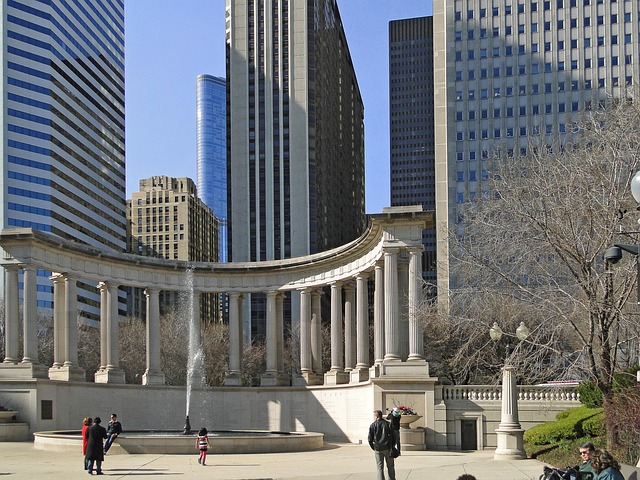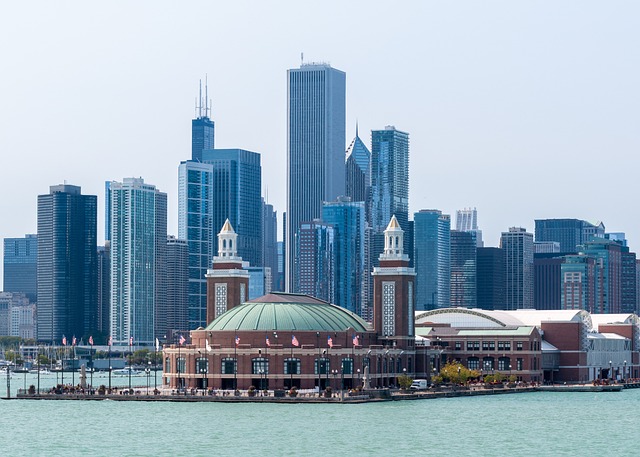In Chicago's competitive real estate market, "as-is" sales of fire-damaged homes present unique opportunities for both buyers and sellers. This trend caters to investors and first-time homebuyers offering affordable entry points while revitalizing communities. Navigating the process requires specialized knowledge due to legal considerations, structural damage assessments, and insurance implications. Selling these properties can stimulate economic growth through development and community pride, fostering resilience in underserved areas.
“Discovering the vibrant yet unique landscape of as-is home sales in Chicago, particularly those affected by fire damage, offers a compelling narrative. This city’s real estate market has witnessed a surge in properties needing significant renovation, presenting both challenges and opportunities. In this comprehensive guide, we explore the rise of fire-damaged listings, their impact on community revitalization, and the practical steps buyers and sellers navigate during these transactions. From understanding legal considerations to recognizing market trends, this article delves into the world of selling fire-damaged homes in Chicago.”
- Understanding As-Is Home Sales: A Chicago Perspective
- The Rise of Fire-Damaged Properties in Chicago
- Market Trends: Demand for As-Is Homes
- Navigating the Process: Buying an As-Is Fire-Damaged Property
- Legal and Financial Considerations for Sellers
- Community Impact: Revitalization through As-Is Sales
Understanding As-Is Home Sales: A Chicago Perspective

In the vibrant real estate market of Chicago, a unique segment stands out: as-is home sales. This niche involves properties that are sold in their current condition, often with various issues or defects, including fire damage. For those considering selling a fire-damaged home in Chicago, understanding this process is paramount. Fire-damaged properties require specific handling due to potential hazards and the need for specialized buyers who can either renovate or repurpose these homes.
Chicago’s as-is sales market caters to both investors and individuals who recognize the value in repairing or redeveloping these properties. It offers a chance to secure real estate at potentially lower prices, attracting those looking for opportunities amidst challenges. Local regulations and guidelines are crucial in ensuring safe transactions, especially when dealing with fire-damaged homes, making it imperative for sellers to be well-informed about the legal aspects of such sales.
The Rise of Fire-Damaged Properties in Chicago
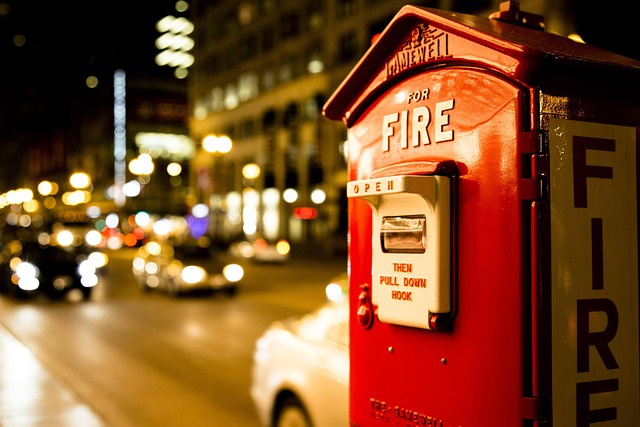
In recent years, Chicago has witnessed a unique and often overlooked segment in its real estate market—the rise in as-is sales of fire-damaged properties. This phenomenon is particularly prominent in areas affected by frequent fires, where homeowners are faced with the difficult decision to either repair and revive their damaged homes or sell them as-is. Selling a fire-damaged home in Chicago has become an attractive option for many, driven by factors such as rising restoration costs, insurance adjustments, and the desire to relocate.
The appeal of these properties lies in their potential for transformation. While they may bear the scars of fire damage, many buyers see past the visible marks and envision a future where these homes can be revitalized and restored to their former glory or even transformed into something entirely new. This trend not only offers an opportunity for enterprising investors but also provides a pathway for first-time homebuyers to secure affordable real estate in competitive Chicago market, especially when traditional sales prove challenging due to the costs of repairs.
Market Trends: Demand for As-Is Homes
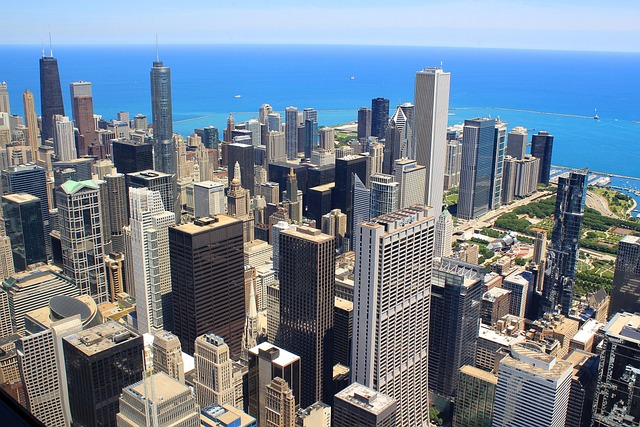
In today’s real estate market, there’s a growing trend in the demand for as-is homes, particularly in bustling cities like Chicago. This shift is driven by several factors, including the appeal of affordable pricing and the opportunity to renovate or rebuild according to personal tastes. For instance, selling a fire-damaged home in Chicago can be an attractive option for both buyers and sellers; buyers get a potential bargain, while sellers can offload a property that may be costly to repair.
The demand for as-is homes is further fueled by the diversity of buyers entering the market. From first-time homebuyers seeking affordable entry points to investors looking for renovation projects, there’s a wide range of interest in these properties. This trend reflects a dynamic real estate landscape where both traditional and non-traditional buyers are actively participating, contributing to a vibrant market environment in cities like Chicago.
Navigating the Process: Buying an As-Is Fire-Damaged Property

Navigating the process of buying a selling fire-damaged home in Chicago requires careful consideration and expertise. As-is sales present unique challenges, especially when dealing with properties that have suffered structural damage from fires. It’s crucial to thoroughly inspect the property to assess the extent of the damage and understand potential repairs needed. Many buyers opt for professional home inspectors who can identify hidden issues often overlooked by the untrained eye.
In Chicago, where real estate is competitive, an as-is fire-damaged home may offer a strategic opportunity for savvy investors. Understanding local building codes and regulations related to property renovation is essential. Buyers should also factor in potential costs for repairs, remodeling, and decontaminating the space if necessary. Engaging with experienced real estate agents who specialize in such transactions can streamline the process, ensuring a smooth buying experience despite the home’s unique circumstances.
Legal and Financial Considerations for Sellers
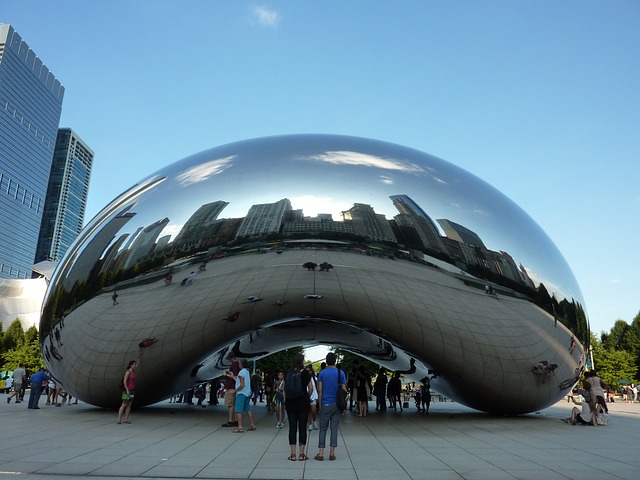
Selling a fire-damaged home in Chicago involves navigating several legal and financial considerations unique to this situation. First, sellers must address the disclosure requirement for previous fires or damage. In Illinois, it’s crucial to inform potential buyers about any significant structural issues or repairs that have been conducted post-fire. Failure to disclose could lead to legal repercussions later.
Additionally, understanding the insurance implications is essential. Sellers should review their policy terms and conditions regarding the sale of a fire-damaged property. They may need to obtain specific coverage for the remaining repairs or face challenges in selling the home at its full value. Financial considerations include assessing repair costs versus the potential increase in property value post-renovation, as well as understanding buyer financing options and any available grants or assistance programs for fire victims in Chicago.
Community Impact: Revitalization through As-Is Sales

In the vibrant city of Chicago, as-is home sales play a pivotal role in community revitalization. When properties are sold in their current state, often including fire-damaged homes, it opens doors for new opportunities and investment. This approach allows local developers and entrepreneurs to breathe new life into neglected areas. By purchasing these distressed properties at discounted rates, they can initiate much-needed renovations, transforming blighted neighborhoods into thriving communities.
These as-is sales have a profound impact on the social fabric of Chicago. They encourage economic growth by creating jobs in construction, real estate, and related industries. Moreover, revitalized areas attract new businesses, improve property values, and foster a sense of community pride. For instance, selling fire-damaged homes in underserved communities can spark a chain reaction of positive change, inspiring residents to invest in their surroundings and fostering a stronger, more resilient Chicago.
The as-is home sales market in Chicago, driven by the unique demand for fire-damaged properties, presents a compelling opportunity for both buyers and sellers. Understanding this niche sector involves recognizing its significant community impact, as revitalized properties contribute to vibrant neighborhoods. For buyers, acquiring these homes offers an affordable entry point into the real estate market. Meanwhile, sellers can benefit from efficient, legal sales processes, allowing them to maximize returns or facilitate a fresh start after property damage. Navigating these transactions requires knowledge of local regulations and financial considerations, ensuring a mutually beneficial outcome for all parties involved in selling fire-damaged homes Chicago.
